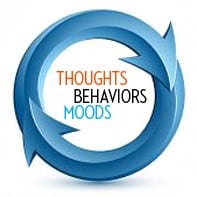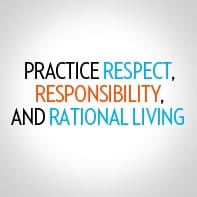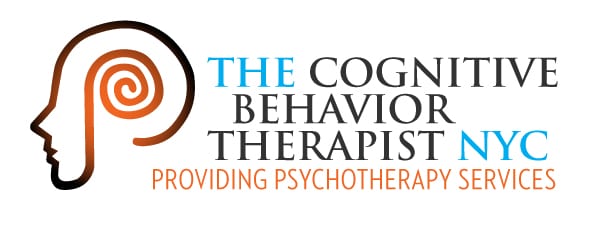Living as an ambitious professional in today’s technology and finance driven world is extremely stressful. There are demanding bosses, needy clients, competitive colleagues, and endless opportunities. Not to mention, with constant innovations in technology there is an overwhelming amount of information and people to filter through creating a constant demand on attention. The reality is that for many professionals who are already are successful or desire success, being stressed-out is a constant and common feeling. The problem is managing that stress so that you get stress relief, and not allow that stress to adversely impact your career, health, personal life and turn into what is known as “burnout syndrome”. If you are planning on living a life as a successful professional then it is best to learn how to enjoy that life by learning to manage stress!
Burnout syndrome is a serious psychological syndrome that begins with constant stressful situations and not enough stress relief. Burnout is not the same for everyone, but it usually includes variations of these 3 characteristics:
-Extreme exhaustion in the form of both mental and physical
-Negative outlook or distancing in the form of cynicism and defensiveness
-Lowering of self efficacy and personal productivity
 Burnout leads to reduced productivity, job turnover and sometimes long term sabbaticals. Burnout can lead to serious psychological problems of anxiety, depression and anger, as well as an inhibited immune system. Burnout usually negatively interferes with relationships and aspirations outside of the office.
Burnout leads to reduced productivity, job turnover and sometimes long term sabbaticals. Burnout can lead to serious psychological problems of anxiety, depression and anger, as well as an inhibited immune system. Burnout usually negatively interferes with relationships and aspirations outside of the office.
There are 6 key stressful work situations that can contribute to your burnout. These are:
- Too much workload. This is due to too many tasks and too much responsibility without proper energy management. This lends itself to exhaustion and opens up the gateway for the other components of burnout.
- Perception of a lack of control over certain job elements that effects job responsibilities. This comes from perfectionist thinking, conflict with management, and lack of access to resource and/or skill deficits.
- Lack of community or trouble engaging in your community in a positive way. Peer and management associations should provide opportunities to socialize, to delegate out, and to receive encouragement and important feedback.
- Rewards are lacking or not motivating. This can be due to rewards that are not clearly defined, not clearly linked to work tasks or not motivating.
- Procedural unfairness – Fairness over how decisions are made and how respectfully you and others feel you are being treated. Research shows what is critical is how you perceive a situation is handled and not necessary the outcome itself. Fairness translates into how much faith you have in the organization to make decision based on your behalf, and how much you can depend on leaders to support you.
- Values are not consider or reflected in your work. Values give purpose for doing your job by making contributions you believe in. Value rewards surpasses contingent rewards (i.e. money). When a job fails to connect your deeper values you can easily become disengaged
How much these situations influences stress levels and burnout syndrome depends on a combination of personality, personal coping strategies and support of the organization.
There are 3 main burnout profiles commonly seen in business professionals.
Overload Burnout— this type affects the perfectionist and eager professional worker who works towards success until exhaustion. This type of burnout is usually caused by lack of energy management and strong perfectionist tendencies. The bad coping strategy most often used is venting but this seems to lead to stress overload, isolation and a tendency to give up on important elements of the job. Good Coping: Practicing stress relief skills (e.g. meditation/yoga, biofeedback therapy, talk therapy) to stay focused and sharp; transforming and reducing unnecessary perfectionist thinking; clearing out negative thinking about uncontrollable events; engaging in community support by delegating.
Lack of Personal Development Burnout – this type affects the under-engaged professional, who is either bored by lack of challenges in the work itself or lacks certain job skills to engage in more challenging work-projects. Poor management, lack of community and lack of motivating rewards contribute to this type of burnout. Bad Coping: The tendency is to manage stress by distancing mentally from work and avoiding community members. These strategies lead to depersonalization and cynicism and eventually quitting. Good Coping: Practicing stress relief skills, managing upward by taking responsibility by being assertive and action oriented in gaining access to new skills and resources while negotiating more challenging responsibilities; engaging in the community by asking for guidance, while encouraging the ideas of others.
Worn-out Burnout —this type impacts the disillusioned professional who thinks it’s impossible to reach the goals they are held accountable for. This usually stems from lack of control over resources, conflicts with upper management, and/or perceived unfairness and value omission. As a result they give up in the face of stress. Bad Coping: Tendency is to stop trying to gain access to the resources and the skills to carve out the path to success. To stop communicating and develop a cynical “it’s never going to work attitude”. Good Coping: Practicing stress relief skills; acquiring emotional intelligence skills to enhance communication so that there is a clearer pathway to job success and access to resources; clearing out reactions to negative events; engaging in the community for feedback.
Question: So what can you do better to manage these types of stressors?
Answer Practice PCTEAM tips
- Practice Smart Stress Relief exercises- By managing stress and avoid becoming mentally and physically exhausted you then can stay sharp, positive minded and engaged.
- Clear your mind and learn to “Shake off” negativity- Learning to de-personalize conflicts that are not meaningful or relevant to your actual work goals. This can be challenging if you deal with volatile, demanding people. Imagine an Olympic runner focusing on his mistakes or the insults of the crowd. They would not be successful.
- Transform your thinking-Get rid of perfectionist thinking and learn to focus on what is needed to move forward not what you ideally would like. With all of the demands of the modern professional world you have to make choices.
- Engage in community- This can be inside and outside of your organization or sector. Having a network of peers, managers, mentors, friends, family or therapist or coach who helps you understand things and reinforces positive contributions and ideas can be essential.
- Acquire Emotional Intelligence -Learning to resolve conflict and negotiate your needs by using skills of tactical empathy and assertion.
- Managing upward –Often managers are just not skilled at managing. Learning to clarify information, make requests to give you access to resources, and to clarify goals and the rewards attached can be essential in avoiding many of the conflicts that lead to burnout.
Measuring Burnout-Are you curious how you Measure Burnout for yourself or professional employees? The three components of burnout are measurable using the MBI-GS Assessment. On the other end of the burnout spectrum is Engagement which is a motivated, energetic person looking to make contributions. The MBI-GS contains questions about relevant attitude and actions. The results create a profile for each individual’s burnout state at the time they answer the questions. The profile reminds us that everyone experiences burnout in a different way, and burnout does not have to be a permanent condition. Overall gaining an understanding where you yourself or your employees land on this spectrum can be useful in preventing burnout and enhancing yours or your team’s productivity.
|
 Stress is not something one can out intellectualize but it is something you can out smart by practicing stress management routines. To find out about our PCTEAM Success program for Stress relief & Emotional Intelligence Skills for Preventing Burnout Contact Dr Jayme PhD, Licensed Psychology & Yoga Instructor
Stress is not something one can out intellectualize but it is something you can out smart by practicing stress management routines. To find out about our PCTEAM Success program for Stress relief & Emotional Intelligence Skills for Preventing Burnout Contact Dr Jayme PhD, Licensed Psychology & Yoga Instructor















